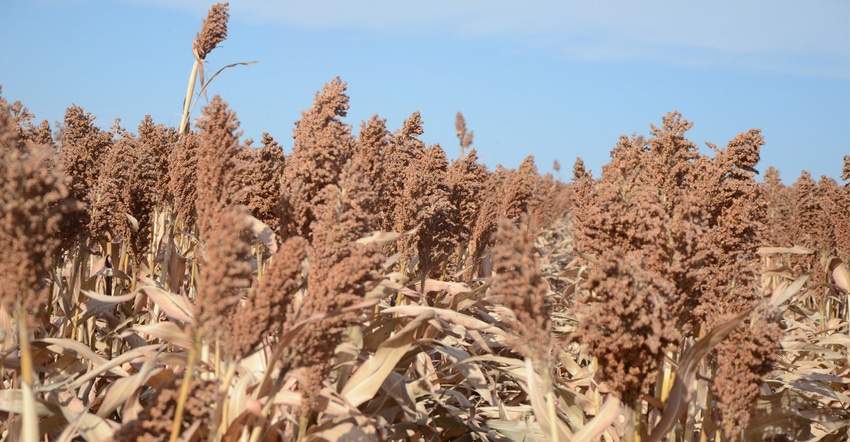May 2, 2019

By Gillian Klucas
A tiny invader's gooey march through U.S. sorghum fields continues to devastate crop yields, forcing some farmers out of the sorghum business despite the crop's increasing importance.
University of Nebraska–Lincoln assistant professor of entomology Joe Louis is investigating ways to help sorghum naturally resist sugarcane aphids, the crop's most damaging pest in the U.S.
Louis earned a five-year, $1.5 million Faculty Early Career Development Program award from the National Science Foundation (NSF) to continue his research.
"Sorghum is one of the top five cereal crops grown in the world," Louis says. "The sugarcane aphid is really damaging this critical crop, so developing novel strategies to control these insects would be beneficial."
Sorghum, an important global food source, is growing in popularity in the U.S. because of its ability to withstand drought and heat, which are worsening under climate change. In the U.S., the world's largest producer of grain sorghum, the crop is grown primarily for animal feed and as a biofuel.
In 2013, sugarcane aphid populations unexpectedly proliferated in Texas and Louisiana, quickly spreading to other states and into Mexico. Aphids, which reproduce rapidly, feed on the plant's leaves and stalks, depleting the plant's nutrients. Aphids also produce a sticky "honeydew" that causes mold to build up on leaves and clogs harvesting equipment.
To investigate how sorghum might better defend itself against sugarcane aphids, Louis and his team looked to a special population of sorghum created from varieties found around the world. From this globally diverse population, the team identified plants that are more resistant to aphids, as well as those more susceptible to the pest.
With this award, Louis will use a blend of molecular, biochemical and electrophysiological approaches to better understand the genetic basis of sorghum resistance to aphids, which will help him determine what makes one variety more resistant to pests than another. With this information, breeders and molecular biologists will be able to develop sorghum varieties with these naturally resistant traits.
"By promoting those innate plant defenses, we're trying to reduce our dependence on toxic and harmful pesticides so we have a much cleaner and safer environment," Louis said.
He anticipates that the information he uncovers also will provide insights into strategies to help other significant cereal crops, such as corn, wheat, rice and barley, which also are attacked by sap-sucking insects.
The NSF grant, known as a CAREER award, supports pretenure faculty who exemplify the role of teacher-scholars through outstanding research, excellent education and the integration of education and research.
This CAREER project is jointly funded by NSF's Plant Genome Research Program, part of the agency's biological sciences directorate, and the Established Program to Stimulate Competitive Research, known as EPSCoR.
Klucas is a writer with the University of Nebraska-Lincoln's Office of Research and Economic Development.
Source: IANR News, which is solely responsible for the information provided and is wholly owned by the source. Informa Business Media and all its subsidiaries are not responsible for any of the content contained in this information asset.
You May Also Like




